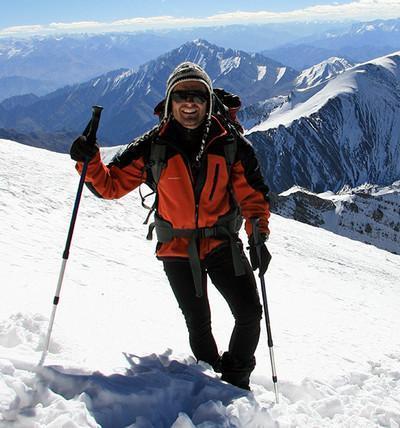There are many things that expectant women want to know about skiing when pregnant. The American College of Obstetricians and Gynecologists (ACOG) advises pregnant women to avoid skiing or snowboarding while pregnant. But the ACOG's advice is conservative. Just 15 years ago, it warned pregnant women against exercising or participating in sports while pregnant.
Safety
While skiing while pregnant isn't necessarily harmful, it is an activity that requires careful planning. Pregnant women should seek the advice of their OB-GYN before attempting this sport. Your doctor may recommend skiing during your pregnancy based on your fitness level and previous experience, or she may warn you against it for specific reasons.
The risk of falling during skiing during pregnancy is high, as is the risk of injury to the mother and baby. The risk of abdominal trauma is real. Additionally, the high altitude makes skiing a less desirable activity for pregnant women. Having mood swings will make sure that everyone knows about your pregnancy. It's okay to stay safe during pregnancy and take a rest.
Risks
There are a few important things to know before you go skiing during your pregnancy. While staying physically active is generally safe during pregnancy, skiing during pregnancy has certain risks that are more significant than general exercise. These risks include falls, which can injure or even kill you, and force trauma to the fetus inside the womb.
The risks of falling or getting hurt while skiing are higher in pregnant women than in other people. These risks are often the least predictable, but they should be considered when making the decision to go skiing. If you're pregnant, you may also be more susceptible to injury because of the changes in your center of gravity and sense of balance.
Suggestions
For the best skiing experience, pregnant women should follow some general safety guidelines. It is not recommended to participate in downhill skiing during your pregnancy, because it can be dangerous for your baby. Also, try to avoid ice skating and sledding. If you are already an experienced skier, cross-country skiing is a safe choice.
To keep yourself safe, always listen to your body's signals. If you start feeling any discomfort or pain, stop skiing right away and take a break. You should also take into consideration whether or not you are physically capable of taking on the same mountains you did before becoming pregnant. Learn more about the benefits of doing exercises during pregnancy.
Air Travel Restrictions
Airlines generally permit pregnant women to fly up to the 36th week of pregnancy, but they do have some restrictions for traveling after this time. If you plan to fly during your last month of pregnancy, you should contact the airline you plan to use and provide a letter from your obstetrician. Some countries may have restrictions as well, so check with your local diplomatic mission before booking.
The best way to get a medical clearance is to visit your doctor and ask for a medical certificate. Although some airlines don't require it, they do require a signed certificate from your doctor before you can board. This certificate should be dated within 10 days of your first flight that is more than 28 weeks. You should make sure you bring this with you to the airport. Similarly, if you plan to fly internationally or over water, you should get a medical certificate from your doctor. You should also carry proof of pregnancy from your doctor, including whether it is a single or multiple pregnancy, and whether there are any complications.
Altitude Sickness
When pregnant, the body needs more oxygen than usual, so it is imperative to avoid high-altitude activities. High-altitude activities are dangerous for the mother and the baby, and a high-altitude pregnancy can lead to placental abruption. The baby is also less likely to get enough oxygen and develop normally. High-altitude activities can also affect the mother's blood sugar level, which may lead to complications. Pregnant women should consult with their doctor before traveling to high-altitude environments, particularly if they have gestational diabetes or are on certain medication for their diabetes.
The symptoms of altitude sickness can vary, from mild to severe. Mild symptoms include headache and fatigue. More severe symptoms can include dizziness, gastrointestinal distress, and insomnia. A physician will evaluate these symptoms and may also perform blood tests to rule out other conditions that can look like altitude sickness.
Fitness Level
When planning to go skiing during pregnancy, it's important to know what your fitness level is. There are a few things you can do to keep yourself comfortable while you're on the slopes. First, don't push yourself too hard. Pregnant women should take it easy when it comes to skiing, and they should avoid exerting too much physical pressure on their bodies. Secondly, stay hydrated. You don't want to become dehydrated while you're on the slopes.
During pregnancy, your body is changing and is unable to support the extra weight of your baby. This can make it difficult to do normal activities. However, you can still enjoy skiing while you're pregnant. A few exercises can help you prepare your body for the extra weight, such as squats and lunges. Side reaches and bends are also great for prepping your outer abdominal muscles. You should also consider the position you'll be in while skiing to ensure that your body is in good shape.
Miscarriage Risk
Pregnancy and skiing go hand in hand, but there are some things to keep in mind when skiing during pregnancy. One major concern is the risk of miscarriage. A fall on the slopes can cause a woman's uterus to rupture, which may lead to early delivery and miscarriage.
Falling from a jet ski is even worse if you fall on your stomach. Besides the physical dangers of falling, jet skis are fast-moving and could cause extreme vibrations. In addition, skiing can be exhausting. If you're planning to go skiing while pregnant, see your doctor to discuss your exercise regimen.





